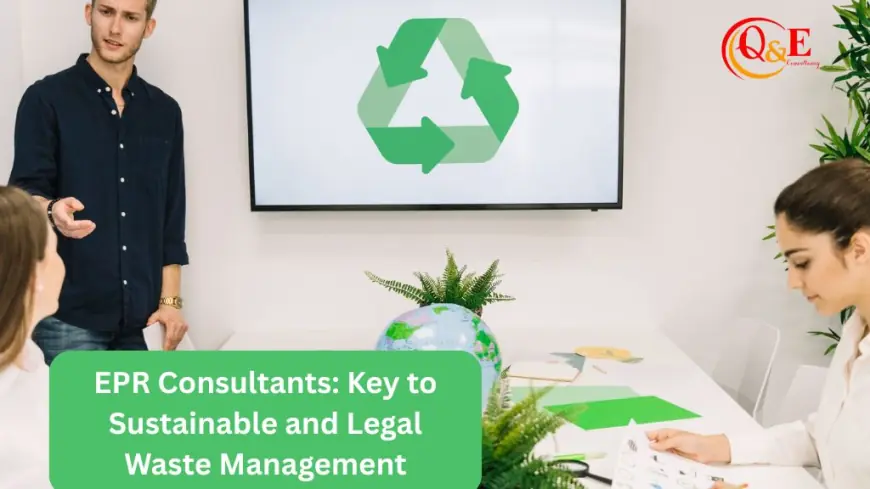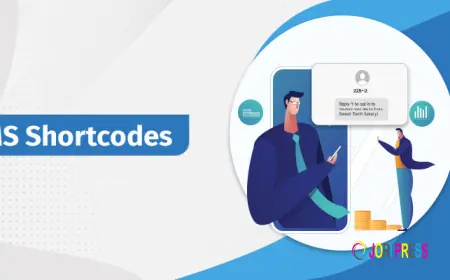Unlocking Compliance: A Comprehensive Guide to EPR Registration for E-Waste Management
Unlocking Compliance: A Comprehensive Guide to EPR Registration for E-Waste Management

With growing environmental concerns and increasing electronic waste generation, managing e-waste responsibly has become a legal and moral obligation for producers. One crucial step in this process is EPR registration for E-waste. This registration ensures that manufacturers, importers, and sellers take responsibility for the lifecycle of their electronic products. If you're navigating this complex regulation, understanding the registration process is vital. Learn more about this at EPR registration for E-waste.
What is EPR Registration for E-Waste?
Extended Producer Responsibility (EPR) is a regulatory framework where producers are accountable for the collection, recycling, and environmentally sound disposal of their products once they become waste. EPR registration for E-waste means manufacturers and importers must formally register themselves with authorized bodies, confirming their commitment to proper e-waste management.
This concept shifts the responsibility from consumers and local governments to producers, encouraging them to design eco-friendly products and take active steps in waste collection.
Why is EPR Registration Essential?
-
Legal Compliance: The government mandates EPR registration under various environmental laws, making it compulsory to avoid penalties or business disruptions.
-
Environmental Impact: Responsible e-waste management minimizes hazardous waste contamination, protecting ecosystems and human health.
-
Corporate Responsibility: Demonstrates the brand’s commitment to sustainability and improves public image.
-
Resource Recovery: Facilitates the recycling of valuable materials, reducing dependency on raw resources.
Who Needs to Register?
The regulation applies to:
-
Manufacturers of electrical and electronic equipment (EEE)
-
Importers and distributors of EEE
-
Brand owners and sellers of electronic goods
All these stakeholders must obtain EPR registration before marketing their products, ensuring they have a roadmap to manage e-waste.
Step-by-Step Process for EPR Registration
-
Eligibility Check: Confirm if your products fall under the e-waste category defined by law.
-
Documentation Preparation: Gather all required documents such as business licenses, product details, and waste management plans.
-
Application Submission: Apply online through authorized portals or agencies, like the one mentioned at EPR registration for E-waste.
-
Fee Payment: Pay the prescribed registration fee based on product type and quantity.
-
Verification: Regulatory authorities review your application and may request additional information.
-
Certificate Issuance: Upon approval, receive the EPR registration certificate, valid for a specific period and renewable as per guidelines.
Key Benefits of EPR Registration
-
Enables lawful product distribution in the market.
-
Builds consumer trust through visible compliance.
-
Helps track and reduce environmental pollution caused by e-waste.
-
Encourages innovation in sustainable product design.
Challenges in EPR Registration and How to Overcome Them
-
Complex Compliance Requirements: Stay updated with changing regulations and seek expert advice.
-
Data Management: Maintain accurate records of product sales and waste handling.
-
Financial Burden: Plan budgets for registration fees and ongoing waste management costs.
-
Coordination with Recycler: Partner with authorized recyclers to meet disposal obligations efficiently.
The Role of Technology in Streamlining EPR Registration
Digital platforms simplify registration and reporting processes, allowing producers to:
-
Submit applications online with ease
-
Track compliance status in real-time
-
Generate mandatory reports for authorities
-
Connect with authorized waste handlers
Future Outlook: EPR and Sustainable E-Waste Management
As e-waste volumes continue to grow, regulations will tighten, and enforcement will become stricter. Producers who embrace EPR registration proactively can:
-
Lead the market with eco-friendly products
-
Reduce regulatory risks
-
Gain competitive advantage through sustainable practices
Conclusion
EPR registration for E-waste is not just a regulatory necessity but a vital component of responsible environmental stewardship. Navigating this process can be complex, but with the right guidance and planning, businesses can turn compliance into a strength. For professional support, explore expert epr consulting services to ensure your registration and ongoing compliance are handled smoothly and effectively at epr consulting services.
What's Your Reaction?
 Like
0
Like
0
 Dislike
0
Dislike
0
 Love
0
Love
0
 Funny
0
Funny
0
 Angry
0
Angry
0
 Sad
0
Sad
0
 Wow
0
Wow
0



















































